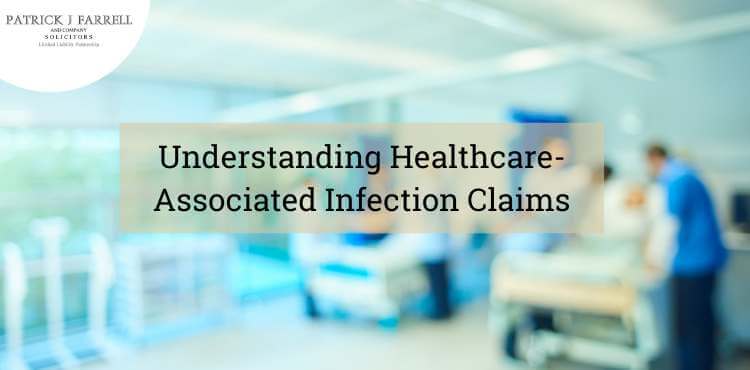Understanding Healthcare-Associated Infection Claims

Healthcare-associated infections (HAIs) are infections that patients acquire while receiving treatment for other conditions within a healthcare setting.
These infections can occur in any healthcare facility, including hospitals, clinics, and long-term care facilities. They pose significant risks and can sometimes lead to severe consequences, including prolonged hospital stays, long-term disability, and, in the most extreme cases, even death.

Helen Coughlan
Medical Negligence Solicitor
Helen Coughlan is a partner and advises on medical negligence*, family law and personal injuries*. Helen is a qualified family mediator and collaborative law practitioner and is Chairperson of the Family and Child Law Committee of the Law Society.
What Constitutes a Healthcare-Associated Infection Claim?
A healthcare-associated infection claim can arise when an infection is contracted due to negligence or substandard care while the patient is in a healthcare setting. Equally, an infection could occur without any wrongdoing on the part of healthcare professionals and in those cases, no claim would arise.
To establish a claim, the patient must demonstrate, for example, that the infection was preventable and occurred as a result of a healthcare professional acting without ‘reasonable care’.
Common Types of Healthcare-Associated Infections
Some of the most common HAIs include:
- MRSA (Methicillin-resistant Staphylococcus aureus), a type of bacterial infection that is resistant to many antibiotics.
- C. difficile (Clostridium difficile), a bacterium that can cause symptoms ranging from diarrhoea to life-threatening inflammation of the colon.
- Urinary tract infections, often associated with catheters.
- Surgical site infections, which can occur after any surgery, particularly those involving implants or prosthesis.
Legal Framework for Claims
The legal framework for healthcare-associated infection claims hinges on proving negligence. This involves showing that the healthcare professionals owed a duty of care, that they breached this duty, and that this breach caused the infection and resultant harm.
What to Do If You Suspect a Healthcare-Associated Infection
If you believe you or a loved one has contracted an infection due to negligence:
- Seek Medical Advice: Your health is the priority. Consult a healthcare professional to confirm the infection and begin appropriate treatment.
- Document Everything: Keep detailed records of all treatments, conversations with healthcare providers, and any additional costs incurred due to the infection.
- Legal Consultation: Consult with a solicitor specialising in medical negligence. They can help you understand your rights and guide you through the process of making a claim.
Compensation and Recovery
Compensation in HAI claims can cover:
- Medical expenses for treatments related to the infection.
- Loss of earnings if you’re unable to work due to the infection.
- Compensation for pain and suffering.
- Costs for rehabilitation and any necessary adjustments to your lifestyle.
HAIs are a serious concern in healthcare settings, and the impact on patients can be profound. If you believe you have suffered as a result of a healthcare-associated infection, it is crucial to get the right legal advice to understand your options for compensation.
If you believe you have a case for a HAI claim, don’t hesitate to contact us for a consultation. Our expert team is committed to providing the compassionate guidance and support you need to achieve the best possible outcome.